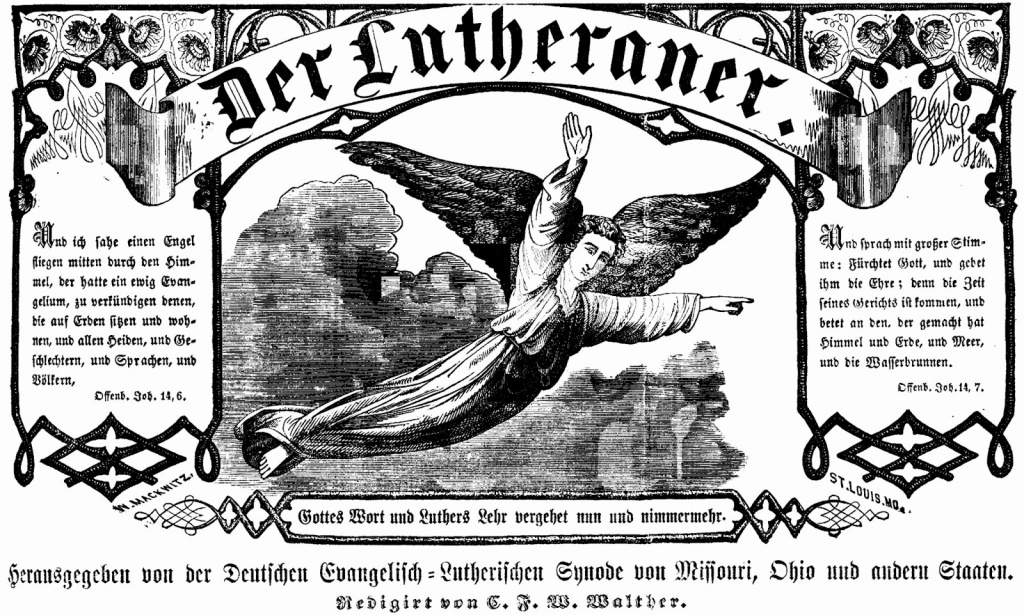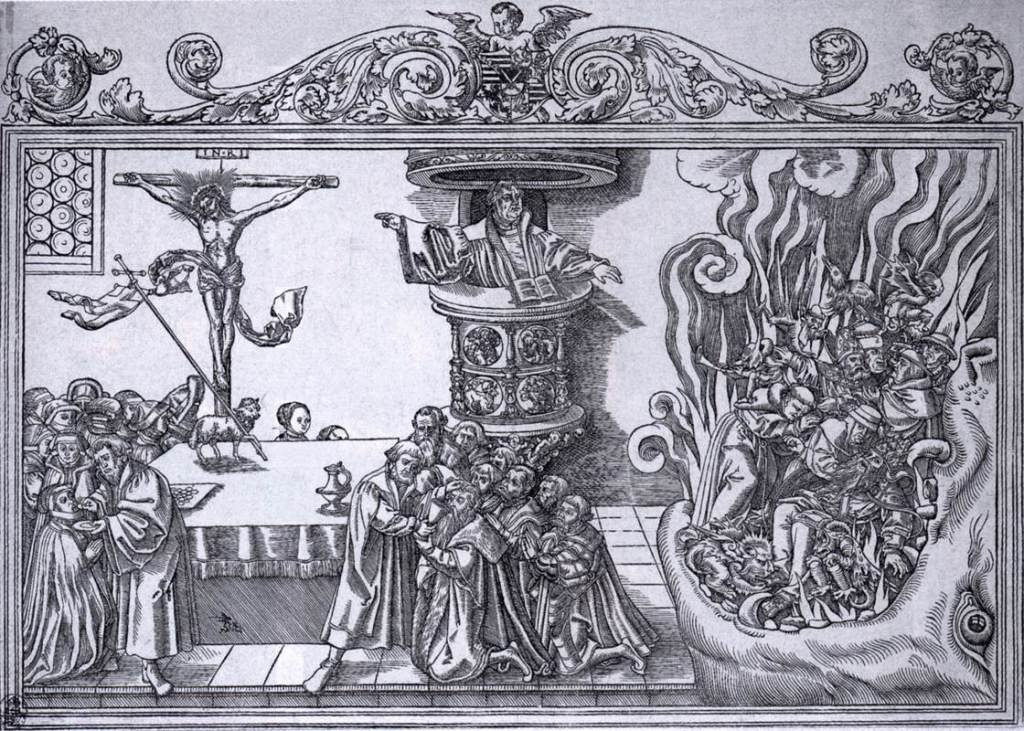The Apology of the Book of Concord was written in response to the many lies written against the Lutherans after the publication of the Book of Concord. One of the calumnies refuted in it was this: The Book of Concord makes Luther into a prophet, “ascribing to him prophetic and apostolic authority, even identifying his writings and doctrine with the prophetic and apostolic Scriptures, and in summary citing him as the rule and plumb line of faith.” (This was before the Reformed sectarians pretended not to hate Luther and all that he taught.) Because all Lutherans happily confess the great work which this lie attacks, some unscrupulous individuals have always accused all truly Lutheran men of this same sacrilege.
This lie is exposed as nothing but “a shameless and baffling fiction” by the authors of the Apology, using the very words cited in the Book of Concord, “in which [Luther] states the distinction between Holy Scripture and his books, namely, that God’s Word alone is and remains the only plumb line and rule of all doctrine.” The passage from the Book of Concord mentioned is found in paragraph 9 of the Comprehensive Summary of the Solid Declaration of the Formula of Concord, where these words are found:
We want to appeal to [Luther’s] full explanations in his doctrinal and polemical writings. We do so in the same way and so far as Dr. Luther himself has given necessary and Christian encouragement about his writings in the Latin preface to his published works [found in AE 34:327 f.]. He has clearly drawn up this distinction: God’s Word alone should be and remain the only standard and rule of doctrine, to which the writings of no man should be regarded as equal. Everything should be subjected to God’s Word.
With this the Lutheran Church has forever been cleared of any reasonable suspicion that it regards Luther as a prophet. But, if this is true, then why has Luther sometimes been called a prophet by Lutherans? Luckily, the writers of the Apology anticipated that the adversaries of God would be all too eager to point this out, so they said:
[Luther has not been called a prophet] in such a way that prophetic authority has been claimed and ascribed to him. He was awakened by the special grace of God the Almighty so that through his ministry the prophetic and apostolic doctrine was cleansed from the idolatry, error, and filth of the anti-Christian papacy. He spoke from God’s Spirit about many great matters which afterward were in truth fulfilled. For example, his prophecy about the Sacramentarian throng which would cause great harm because of our ingratitude has been fulfilled. He announced this especially in 1544 on Genesis, in his last sermon at Wittenberg, and otherwise often, and conscientiously warned us against it. It never entered the minds of our people for that reason to give Luther equal respect and authority with the prophets and apostles. That was invented by our opponents in a false way and without any basis against the Christian Book of Concord and against our churches.
In response to this final blow against this anti-Christian slander, one might inquire as to why the Book of Concord appeals so highly to the writings of Luther and cites several of them by name as a public confession of the doctrine taught in all Lutheran churches; and that is exactly what the inveterate liars asked, to which the Apology was obligated to answer:
[T]his does not happen because we ascribe prophetic and apostolic authority to [Luther’s] books or to him, or regard them as the rule and norm of faith, but because it is our completely certain opinion that in these books of Luther the unchangeable truth is repeated, grasped, expounded, and proven on the basis of the prophetic and apostolic Scriptures.…
Further, we do not doubt that in these writings of Luther this unanimity which we embrace is repeated, and we hold that in them the truth contained in the prophetic and apostolic Scriptures is given public testimony. Nevertheless, we always maintain this distinction: that we put our trust in the prophetic and apostolic Scriptures as God’s infallible Word and because of that authority we have no doubt about them. We approve of Luther’s writings in this way: that we regard and know that in them the doctrine for which God used the prophets and apostles is presented and genuinely recovered. We accept his writings as a witness to the truth as far as we are certain that they produce the doctrine founded on God’s Word, and no further. How can we state our position more clearly? For that reason, the invented calumnies of our opponents fall to the ground.
In the process of dashing to pieces the final vestiges of all opposing views (I really ought to say “slanders”), the authors of the Apology have shown exactly why and in what way the writings of Luther are to be treasured, which must strengthen the faith of all their readers.





